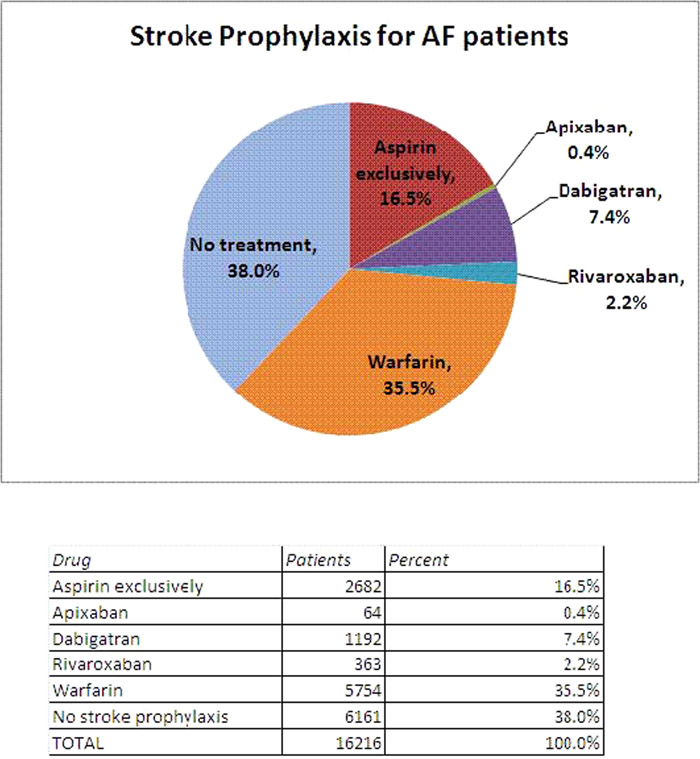Background:
Atrial fibrillation (AF) represents one of the leading diagnoses for hospitalized patients and is a common cause of cardioembolic stroke. Patients with AF are five times more likely to have a stroke than those without this condition and although anticoagulation is very effective at reducing AF‐related strokes, studies estimate that a large percent of patients do not receive any stroke prophylaxis. This study assessed the rates of prophylaxis for stroke prevention in patients with atrial fibrillation upon patient discharge from our academic medical center.
Methods:
A total of 16,216 patients with a primary or any secondary diagnosis of atrial fibrillation discharged between 1/1/11 and 10/31/13 were evaluated for the use antiplatelet or antithrombotic stroke prophylaxis. Patients on warfarin, dabigatran, rivaroxaban, apixaban or aspirin were noted as having received some form of stroke prophylaxis. If patients were on an antiplatelet agent along with an antithrombotic agent, they were counted as having antithrombotic therapy. Patients who were exclusively on antiplatelet agents were counted in another category. The use of these medications within 48 hours of hospital discharge was used as a proxy measure for likely continuation of the agents upon discharge.
Results:
Please review the attached figures for results. Of all patients, 35.5% received warfarin, 16.5% received aspirin (exclusively), 7.4% received dabigatran, 2.2% received rivaroxaban, and 0.4% received apixaban. 38% of patient received no stroke prophylaxis of any kind.
Conclusions:
Approximately 38% of hospitalized patients with atrial fibrillation were not given any agent for stroke prevention upon discharge. Although data was not stratified by CHADS2 score, those patients found to have a very low score would likely benefit by treatment with an antiplatlet agent and those with a higher score would benefit from anticoagulant treatment. In addition, those discharged on aspirin may have received under prophylaxis if their CHADS2 score warranted anticoagulation with warfarin or dabigatran. System reminders for stroke prevention assessment should be developed for all atrial fibrillation patients being discharged to home and the use of antiplatelet or anticoagulant agents should be encouraged given the effectiveness of these agents as stroke prevention strategies.

